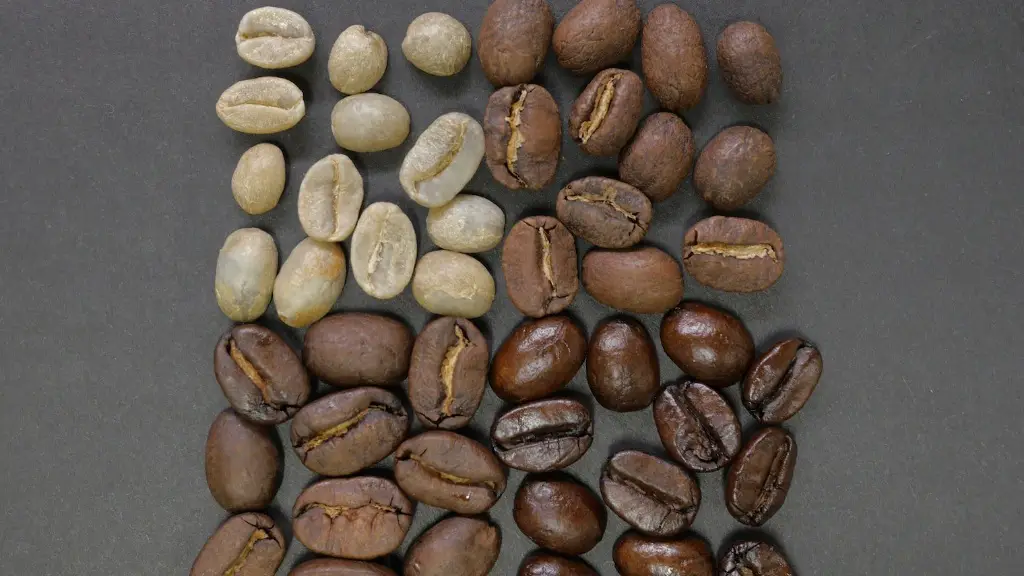Is Drinking Coffee Healthy for You?
Coffee is enjoyed by millions of people around the world. Whether it’s a simple cup in the morning or a carefully crafted mocha espresso, coffee is often seen as a necessity by many. But is it healthy to drink coffee? Well, the answer to that question is not as simple as yes or no. By exploring the various stances on coffee and what research is saying, we can get a better understanding of whether or not coffee is good for us.
Research to suggest that coffee is good for us has been steadily on the rise. For starters, coffee is an excellent source of several vitamins and minerals, including riboflavin, niacin, and magnesium, as well as polyphenols, which are a type of antioxidant. Antioxidants are important because they help protect our cells from damage that can lead to different diseases. Some studies have even linked coffee to reduce rates of certain types of cancers, as well as stroke and type 2 diabetes. Additionally, many believe that coffee helps increase alertness, focus and concentration.
However, evidence to suggest negative effects from drinking too much coffee is still present. For instance, high levels of caffeine can contribute to shakiness, jitteriness, headaches, rapid heartbeats, and anxiety. Additionally, drinking too much coffee can be uncomfortable for those who are sensitive to caffeine, or for those who have an underlying health condition. Coffee may also be bad for pregnant women, as it has been linked to an increased risk of miscarriage.
How Much Coffee is “Healthy” to Drink?
When it comes to finding out how much coffee is “healthy” to drink, the answer is different for everyone. Although some research has suggested that drinking up to five or six cups a day is sustainable, it’s important to remember that caffeine sensitivity and metabolism can vary greatly from person to person. The best way to drink coffee without overindulging is to stick to a regular, lower-caffeine content coffee, rather than an espresso or an energy drink. It’s also a good idea to consume coffee with healthy snacks to balance out energy.
The Benefits of Adding Milk to Coffee
Adding milk to coffee is becoming increasingly common, due to the potential health benefits. Milk is naturally high in protein, fat and carbohydrates and can also add a great flavor to a cup of joe, as well as help to make it more filling. Additionally, some studies have suggested that milk in coffee reduces the bitter taste and acidity of coffee, which can be beneficial for those with digestive issues.
Furthermore, those who have stomach problems may find that adding milk to coffee helps to reduce their digestive discomfort. Milk in coffee can also slow down the absorption of caffeine, which can lead to more sustained energy from a cup of coffee. Finally, adding milk to coffee is a great way to get extra calcium and vitamin D.
How to Make Coffee Healthier
In addition to reducing the amount of caffeine in coffee, there are several other ways to make coffee more beneficial to one’s health. For example, switching from cream to milk is an easy yet effective way to make coffee healthier. Additionally, adding in spices such as cinnamon and nutmeg can liven up coffee without adding sugar, as both are naturally sweet and will also aid in digestion.
Coffee is also a great way to get in your daily dose of antioxidants. Some brands of coffee have higher levels of these beneficial compounds, so it’s important to read labels before purchasing a cup of joe. Finally, it’s important to note that the creamers and syrups that many put in their coffee are not necessarily healthy, particularly if they are loaded with added sugars and artificial ingredients.
Alternative Healthy Coffee Options
Not all coffee is created equal, and there are plenty of alternatives to regular coffee. For example, cold brew coffee is a popular option, that’s often made with less caffeine than traditional coffee. Matcha is one of the most popular drinks to come from Japan and has numerous health benefits due to its high concentration of antioxidants, amino acids, and vitamins. Finally, chai tea is made from black tea and has lower concentrations of caffeine than coffee. Chai tea is also very rich in antioxidants and is believed to help promote energy and digestion.
Organic Coffee and its Benefits
Organic coffee is coffee that has been naturally grown and processed without the use of synthetic fertilizers, herbicides, or pesticides. As organic farming promotes nutrient-rich soil and reduced environmental pollution, organic coffee can be particularly beneficial. Additionally, organic coffee may have a higher concentration of antioxidants compared to regular coffee. Some studies have also suggested that organic coffee can taste better than conventional coffee, as it has a higher concentration of essential oils and other compounds.
Impact of Drinking Coffee on the Environment
Coffee has a large environmental footprint. As the majority of coffee is grown in poor, developing countries and transported in large cargo ships, the use of resources needed to produce and transport it can be damaging. Cafes and restaurants also often generate large amounts of waste from disposable cups, lids, and straws. To minimize the impact of coffee production, it is important to consider the type of coffee beans being purchased. Opting for organic products from local growers can help reduce the amount of carbon emissions from transportation and may also ensure fair labor practices.
Health Effects of Coffee Beyond the Drinking of it
Coffee also has potential health benefits beyond just drinking it. Coffee grounds, for example, are often used in gardens as fertilizer as they are thought to add nutrients to the soil and can even help reduce the amount of pests. Furthermore, coffee grounds can be used as a natural abrasive on furniture, countertops and even the body in scrubs and masks. Coffee is also said to have the potential to remove smells from fabrics such as couches and carpets.
Advantages of Drinking Coffee at Work
Drinking coffee at work can be a great way to ensure productivity and focus. Studies have also shown that coffee can help reduce stress levels, which is beneficial for those working in high-pressure environments. Coffee can also be a great way to increase energy and alertness throughout the day, and may even enhance one’s creativity. Additionally, coffee can make for excellent networking opportunities, as it allows people to connect over a mutual fondness of coffee.
The Importance of Source of Coffee
When it comes to finding a coffee that is good for you, it’s important to know where the coffee is coming from. Coffee that is produced in a non-sustainable way, for example, will not only be damaging to the environment, but also to consumers’ health. It is important to look for coffee beans with certification from organizations like Rainforest Alliance, Fairtrade International and the Organic Consumers Association.
Coffee’s Impact on Mental Health
Many believe that coffee not only improves physical health, but mental health as well. Coffee can help to increase cognitive function and alertness, which can be beneficial for those who struggle with concentration or focus. Furthermore, those with depression or anxiety may find that the small boost coffee gives can help to make them feel better. Though, it’s essential to remember to stop drinking coffee if it ever makes a person feel uncomfortable or anxious.
Effects of Coffee on Teens
Though, it’s important to remember that research regarding the effects of coffee on teens is still lacking. Evidence exists to suggest that too much caffeine can be especially damaging to adolescents as they are still in the process of developing. Coffee should also be avoided completely in certain cases, such as those who are on stimulant medications and those with a family history of psychiatric illnesses.
Confronting Popular Coffee Myths
Though, due to its various health benefits, coffee has picked up some myths along the way. For instance, although many link coffee to dehydration, it does not actually cause dehydration, and, in fact, it is not diuretic. Additionally, many believe that drinking coffee can raise cholesterol, however, numerous studies have found no significant link between the two. Finally, many attribute headaches to caffeine intake, though this is more likely due to lack of hydration or abrupt withdrawals.




